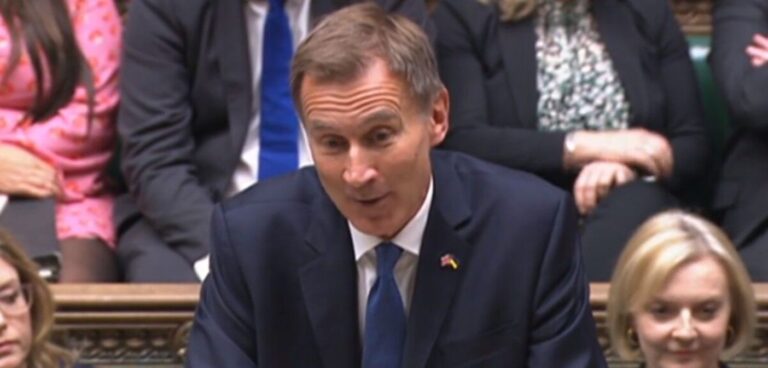In today’s [17 November] autumn statement, UK chancellor Jeremy Hunt set out the government’s planned fiscal policy for the next year, including plans to reform the tax system around motoring and fuel duty.
He claimed that a major part of this was to make the process more equitable by changing how electric vehicles (EVs) are taxed.
Hunt said: “Because the OBR (Office for Budget Responsibility) forecasts half of all new vehicles will be electric by 2025, to make our motoring tax system fairer I’ve decided that from then, electric vehicles will no longer be exempt from vehicle excise duty.”
Currently, electric vehicles are exempt from this duty, which is a tax levied on every vehicle using public roads in the UK. It is collected by the Driver and Vehicle Licensing Agency (DVLA).
Lauren Pamma, programme director at the Coalition for the Decarbonisation of Road Transport (CDRT), said: “As fossil fuel powered vehicles leave the road, we are left with a significant hole in the budget from both the £25bn loss in fuel duty revenue, and the loss of vehicle excise duty (VED) revenue.
“Removing the exemption from VED for EVs is a logical and necessary step to fill this hole.
“However, it is important to maximise the benefits to EV ownership compared to fossil fuel vehicles – to that end the government has made the right call by keeping VED lower for EVs.
“While further taxation on EVs will be necessary, it is crucial the government does not move too fast in increasing taxes on EV drivers and so risk slowing the transition.”
Nicholas Lyes, head of policy at motor insurance organisation RAC, said: “After many years of paying no car tax at all, it’s probably fair the government gets owners of electric vehicles to start contributing to the upkeep of major roads from 2025.
“While vehicle excise duty rates are unlikely to be a defining reason for vehicle choice, we believe a first-year zero-VED rate benefit should have been retained as a partial incentive.
“But we don’t expect this tax change to have much of an effect on dampening the demand for electric vehicles given the many other cost benefits of running one.”
A caveat to this, Hunt said, would be that company car tax rates for EVs would be lower than other private EVs.





